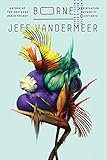We wouldn’t dream of abandoning our vast semi–annual Most Anticipated Book Previews, but we thought a monthly reminder would be helpful (and give us a chance to note titles we missed the first time around). Here’s what we’re looking out for this month. For more April titles, check out the Great First-Half 2017 Preview, and let us know what you’re looking forward to in the comments.
 Anything Is Possible by Elizabeth Strout: “As I was writing My Name Is Lucy Barton,” said Strout, the New York Times bestselling author and Pulitzer Prize winner, of her 2016 novel, “it came to me that all the characters Lucy and her mother talked about had their own stories.” Anything is Possible was written in tandem to Lucy Barton. For Strout’s many devoted readers, this novel promises to expand on and add depth to the story, while exploring themes for love, loss, and hope in a work that, “recalls Olive Kitteridge in its richness, structure, and complexity.” (Claire)
Anything Is Possible by Elizabeth Strout: “As I was writing My Name Is Lucy Barton,” said Strout, the New York Times bestselling author and Pulitzer Prize winner, of her 2016 novel, “it came to me that all the characters Lucy and her mother talked about had their own stories.” Anything is Possible was written in tandem to Lucy Barton. For Strout’s many devoted readers, this novel promises to expand on and add depth to the story, while exploring themes for love, loss, and hope in a work that, “recalls Olive Kitteridge in its richness, structure, and complexity.” (Claire)
 Marlena by Julie Buntin: I was lucky enough to read an advance copy of Buntin’s remarkable debut novel, about an intense friendship between two young women in rural Michigan, and I agree with Stephanie Danler, author of Sweetbitter, who calls it “lacerating.” Aside from a riveting story and nuanced characters, Buntin has also delivered an important story about addiction and poverty in middle America. In its starred review, Booklist called it “Ferrante-esque.” (Edan)
Marlena by Julie Buntin: I was lucky enough to read an advance copy of Buntin’s remarkable debut novel, about an intense friendship between two young women in rural Michigan, and I agree with Stephanie Danler, author of Sweetbitter, who calls it “lacerating.” Aside from a riveting story and nuanced characters, Buntin has also delivered an important story about addiction and poverty in middle America. In its starred review, Booklist called it “Ferrante-esque.” (Edan)
 American War by Omar El Akkad: El Akkad is an award-winning Canadian journalist, whose reporting has ranged from the war in Afghanistan to the protests in Ferguson, Mo. His brilliant and supremely disquieting debut novel opens in 2074, at the outbreak of the Second American Civil War, and follows a young Louisiana girl, Sarat Chestnut, as time and conflict gradually transform her from a child into a weapon. (Emily)
American War by Omar El Akkad: El Akkad is an award-winning Canadian journalist, whose reporting has ranged from the war in Afghanistan to the protests in Ferguson, Mo. His brilliant and supremely disquieting debut novel opens in 2074, at the outbreak of the Second American Civil War, and follows a young Louisiana girl, Sarat Chestnut, as time and conflict gradually transform her from a child into a weapon. (Emily)
 The Last Neanderthal by Claire Cameron: Our own Cameron returns with a new novel about two women separated by, oh, only 40,000 years: Girl, the eldest daughter in the last family of Neanderthals, and present-day archeologist Rosamund Gale, who is excavating Neanderthal ruins while pregnant. How these two stories echo and resonate with one another will be just one of its delights. Such an ingenious premise could only come from the writer who brought us The Bear, which O, The Oprah Magazine deemed “a tender, terrifying, poignant ride” and which People gave 4 stars, saying “it could do for camping what Jaws did for swimming.” (Edan)
The Last Neanderthal by Claire Cameron: Our own Cameron returns with a new novel about two women separated by, oh, only 40,000 years: Girl, the eldest daughter in the last family of Neanderthals, and present-day archeologist Rosamund Gale, who is excavating Neanderthal ruins while pregnant. How these two stories echo and resonate with one another will be just one of its delights. Such an ingenious premise could only come from the writer who brought us The Bear, which O, The Oprah Magazine deemed “a tender, terrifying, poignant ride” and which People gave 4 stars, saying “it could do for camping what Jaws did for swimming.” (Edan)
 No One Is Coming to Save Us by Stephanie Powell Watts: A novel about a black family in North Carolina dealing with economic decline, outsourcing, and the legacy of Jim Crow. Watts’s debut has been pitched as a contemporary retelling of The Great Gatsby, but Ron Charles writes in the The Washington Post that Watts hasn’t done merely another reboot; she has written a “sonorous, complex novel that’s entirely her own.” (Lydia)
No One Is Coming to Save Us by Stephanie Powell Watts: A novel about a black family in North Carolina dealing with economic decline, outsourcing, and the legacy of Jim Crow. Watts’s debut has been pitched as a contemporary retelling of The Great Gatsby, but Ron Charles writes in the The Washington Post that Watts hasn’t done merely another reboot; she has written a “sonorous, complex novel that’s entirely her own.” (Lydia)
 A Little More Human by Fiona Maazel: A new novel from the author of Woke Up Lonely, Maazel’s latest is a superhero story about a mild-mannered mind-reader slash nursing assistant from Staten Island dealing with personal and professional strife. It sounds as though Maazel has rifled deftly through genres to create something in a class entirely by itself. (Lydia)
A Little More Human by Fiona Maazel: A new novel from the author of Woke Up Lonely, Maazel’s latest is a superhero story about a mild-mannered mind-reader slash nursing assistant from Staten Island dealing with personal and professional strife. It sounds as though Maazel has rifled deftly through genres to create something in a class entirely by itself. (Lydia)
 Borne by Jeff VanderMeer: A much-awaited new offering from the author of the breakout hit Southern Reach trilogy (the first volume of which will be a movie later this year). The titular Borne is a small, living “green lump” adopted by a lonely young woman living in a post-apocalyptic city plagued by a roving bear and hazardous waste. Colson Whitehead calls Borne “a thorough marvel.” (Lydia)
Borne by Jeff VanderMeer: A much-awaited new offering from the author of the breakout hit Southern Reach trilogy (the first volume of which will be a movie later this year). The titular Borne is a small, living “green lump” adopted by a lonely young woman living in a post-apocalyptic city plagued by a roving bear and hazardous waste. Colson Whitehead calls Borne “a thorough marvel.” (Lydia)
 The Book of Joan by Lidia Yuknavitch: In a new kind of world, we need a new kind of hero and a reimagined Joan of Arc from Yuknavitch seems like just the thing. Following her widely lauded The Small Backs of Children, this novel takes place in the near future after world wars have turned the Earth into a war zone. Those surviving are sexless, hairless, pale-white creatures who write stories on their skin, but a group of rebels rally behind a cult leader named Jean de Men. Roxane Gay calls it, “a searing condemnation, and fiercely imaginative retelling.” (Claire)
The Book of Joan by Lidia Yuknavitch: In a new kind of world, we need a new kind of hero and a reimagined Joan of Arc from Yuknavitch seems like just the thing. Following her widely lauded The Small Backs of Children, this novel takes place in the near future after world wars have turned the Earth into a war zone. Those surviving are sexless, hairless, pale-white creatures who write stories on their skin, but a group of rebels rally behind a cult leader named Jean de Men. Roxane Gay calls it, “a searing condemnation, and fiercely imaginative retelling.” (Claire)
 The Woman Who Had Two Navels and Tales of the Tropical Gothic by Nick Joaquin: The first U.S. appearance of one of the Philippines’ most distinguished writers, pegged to the centenary of his birth. Joaquin, who died in 2004, wrote in English and set much of his work — which included two novels and several collections of short stories in addition to essays, plays, and criticism — in post-WWII Manila, exploring themes of colonialism and liberation, Catholicism and folklore. An exciting introduction for uninitiated American readers into Joaquin’s oeuvre. (Lydia)
The Woman Who Had Two Navels and Tales of the Tropical Gothic by Nick Joaquin: The first U.S. appearance of one of the Philippines’ most distinguished writers, pegged to the centenary of his birth. Joaquin, who died in 2004, wrote in English and set much of his work — which included two novels and several collections of short stories in addition to essays, plays, and criticism — in post-WWII Manila, exploring themes of colonialism and liberation, Catholicism and folklore. An exciting introduction for uninitiated American readers into Joaquin’s oeuvre. (Lydia)
 What It Means When a Man Falls from the Sky by Lesley Nneka Arimah: This debut collection of short stories, which takes its name from a story published in Catapult in 2015 to wide acclaim — one that seamlessly blends magical realism and a kind of sci-fi, resulting in a one-of-a-kind dystopia — announces the arrival of a brilliant new talent. Don’t take our word for it: one story, “Who Will Greet You at Home,” appeared in The New Yorker and was a National Magazine Award finalist, and others are already drawing high praise from across the publishing community. These stories explore the ties that bind us together, but in magical, even subversive forms. (Kaulie)
What It Means When a Man Falls from the Sky by Lesley Nneka Arimah: This debut collection of short stories, which takes its name from a story published in Catapult in 2015 to wide acclaim — one that seamlessly blends magical realism and a kind of sci-fi, resulting in a one-of-a-kind dystopia — announces the arrival of a brilliant new talent. Don’t take our word for it: one story, “Who Will Greet You at Home,” appeared in The New Yorker and was a National Magazine Award finalist, and others are already drawing high praise from across the publishing community. These stories explore the ties that bind us together, but in magical, even subversive forms. (Kaulie)
 Such Small Hands by Andrés Barba: The first offering from a new, Oakland-based, translation-focused nonprofit publisher Transit Press Books, this is the fourth of Spanish novelist Barba’s books to appear in English. The novel relates the story of a new girl in an orphanage, and the sinister game she invents with her co-residents. The novel is translated by Lisa Dillman, with an afterword by Edmund White. In a starred review Kirkus warns, “Barba’s girls, and their game, will linger in the minds of his readers.” (Lydia)
Such Small Hands by Andrés Barba: The first offering from a new, Oakland-based, translation-focused nonprofit publisher Transit Press Books, this is the fourth of Spanish novelist Barba’s books to appear in English. The novel relates the story of a new girl in an orphanage, and the sinister game she invents with her co-residents. The novel is translated by Lisa Dillman, with an afterword by Edmund White. In a starred review Kirkus warns, “Barba’s girls, and their game, will linger in the minds of his readers.” (Lydia)








